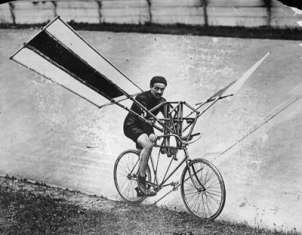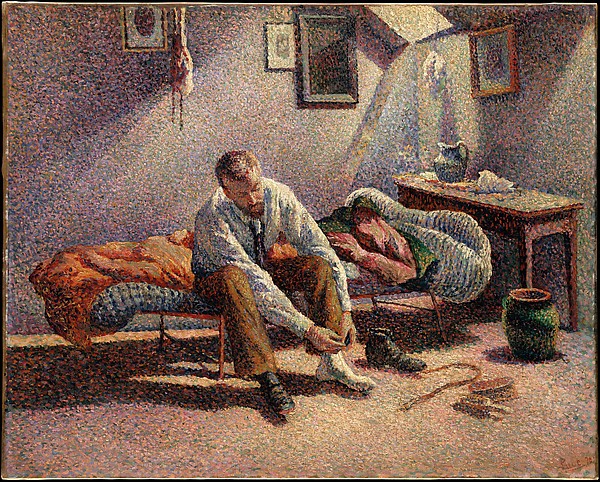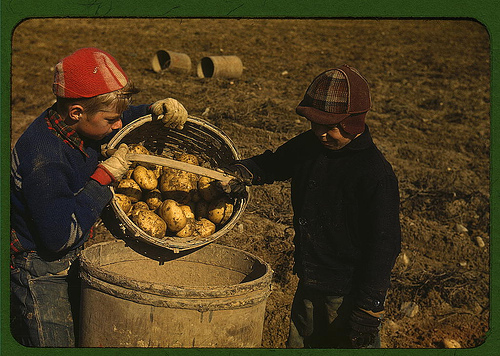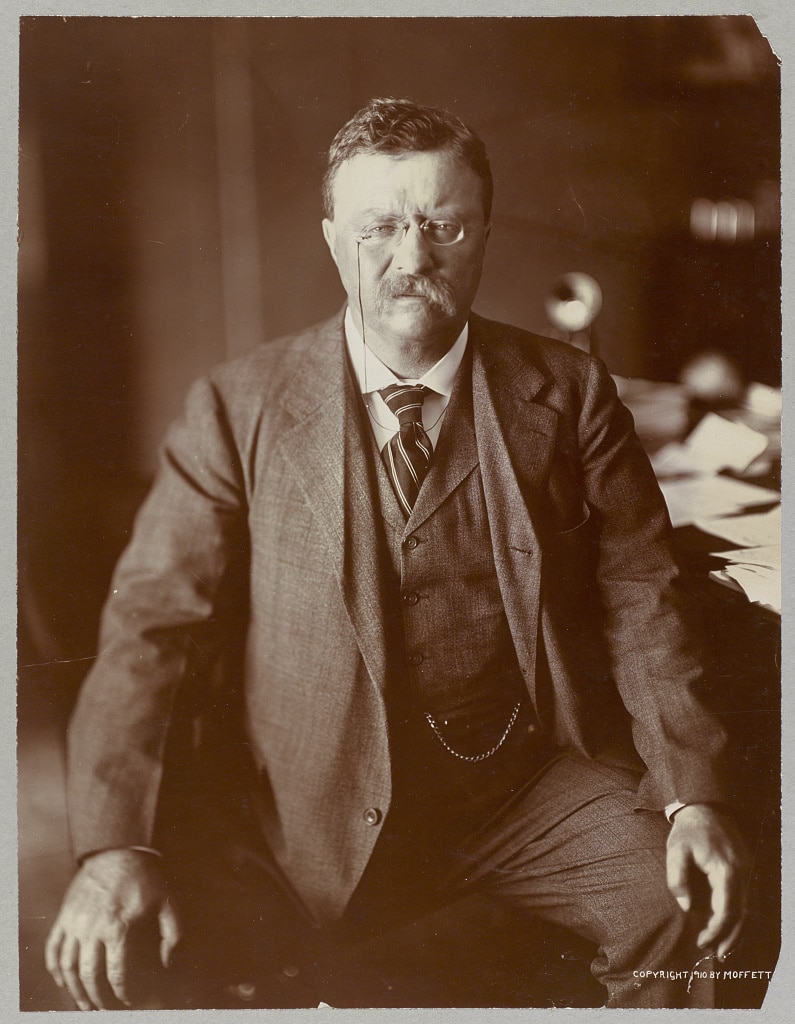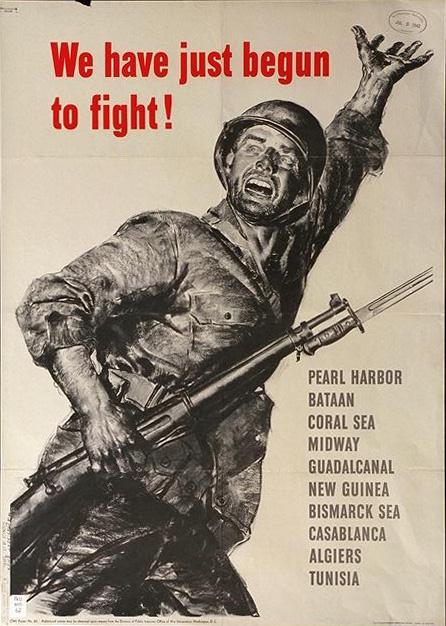
Editor’s note: It is in times of turmoil and strife that true manliness is shown. A life without adversity makes a man weak and dull. In his essay, “On Providence,” the Roman philosopher Seneca discusses the importance of adversity in shaping a man’s life. According to Seneca, it is only through adversity that the Great Man can be created. Theodore Roosevelt understood this principle. It was the basis of his philosophy of the strenuous life. My generation has grown up in a time of unprecedented peace and affluence. If we really want to know what we’re made of, we must be tested. If you wish to be a great man, avoid the life of ignoble ease and take on difficult tasks.
From On Providence, by Seneca
Success comes to the common man, and even to commonplace ability; but to triumph over the calamities and terrors of mortal life is the part of a great man only. Truly, to be always happy and to pass through life without a mental pang is to be ignorant of one half of nature. You are a great man; but how do I know it if Fortune gives you no opportunity of showing your worth? You have entered as a contestant at the Olympic games, but none other besides you; you gain the crown, the victory you do not gain. You have my congratulations – not as a brave man, but as if you had obtained the consulship or praetorship; you have enhanced your prestige. In like manner, also, I may say to a good man, if no harder circumstance has given him the opportunity whereby alone he might show the strength of his mind, “I judge you unfortunate because you have never been unfortunate; you have passed through life without an antagonist; no one will know what you can do, – not even yourself.” For if a man is to know himself, he must be tested; no one finds out what be can do except by trying. and so some men have presented themselves voluntarily to laggard misfortune, and have sought an opportunity to blazon forth their worth when it was but to pass into obscurity. Great men, I say, rejoice oft-times in adversity, as do brave soldiers in in the time of Tiberius Caesar, complaining of the scarcity of shows. “How fair an age,” he said, “has passed away!”
True worth is eager for danger and thinks rather of its goal than of what it may have to suffer, since even what it will have to suffer is a part of its glory. Warriors glory in their wounds and rejoice to display the blood spilled with luckier. Those who return from the battle unhurt may have fought as well, but the man who returns with a wound wins the greater regard. God, I say, is showing favour to those whom he wills shall achieve the highest possible virtue whenever he gives them the means of doing a courageous and brave deed, and to this end they must encounter some difficulty in life. You learn to know a pilot in a storm, a soldier in the battle-line. How can I know with what spirit you will face poverty, if you wallow in wealth? How can I know with what firmness you will face disgrace, ill fame, and public hatred, if you attain to old age amidst rounds of applause, – if a popularity attends you that is irresistible, and flows to you from a certain leaning of men’s minds? How do I know with what equanimity you would bear the loss of children, if you see around you all that you have fathered? I have heard you offering consolation to others. If you had been offering it to yourself, if you had been telling yourself not to grieve, then I might have seen your true character. Do not, I beg of you, shrink in fear from those things which the immortal gods apply like spurs, as it were, to, our souls. Disaster is Virtue’s opportunity. Justly may those be termed unhappy who are dulled by an excess of good fortune, who rest, as it were, in dead calm upon a quiet sea; whatever happens will come to them as a change.
Cruel fortune bears hardest upon the inexperienced; to the tender neck the yoke is heavy. The raw recruit turns pale at the thought of a wound, but the veteran looks undaunted upon his own gore, knowing that blood has often been the price of his victory. In like manner God hardens, reviews, and disciplines those whom he approves, whom he loves.Those, however, whom he seems to favour, whom he seems to spare, he is really keeping soft against ills to come. For you are wrong if you suppose that any one is exempt from ill. Even the man who has prospered long will have his share some day; whoever seems to have been released has only been reprieved. Why is it that God afflicts the best men with ill health, or sorrow, or some other misfortune? For the same reason that in the army the bravest men are assigned to the hazardous tasks; it is the picked soldier that a general sends to surprise the enemy by a night attack, or to reconnoitre the road, or to dislodge a garrison. Not a man of these will say as he goes, “My commander has done me an ill turn,” but instead, “He has paid me a compliment.” In like manner, all those who are called to suffer what would make cowards and poltroons weep may say, “God has deemed us worthy instruments of his purpose to discover how much human nature can endure.”
Flee luxury, flee enfeebling good fortune, from which men’s minds grow sodden, and if nothing intervenes to remind them of the common lot, they sink, as it were, into the stupor of unending drunkenness. The man who has always had glazed windows to shield him from a drought, whose feet have been kept warm by hot applications renewed from time to time, whose dining- halls have been tempered by hot air passing beneath the floor and circulating round the walls, – this man will run great risk if he is brushed by a gentle breeze. While all excesses are hurtful, the most dangerous is unlimited good fortune. It excites the brain, it evokes vain fancies in the mind, and clouds in deep fog the boundary between falsehood and truth. Would it not be better, summoning virtue’s help, to endure everlasting ill fortune than to be bursting with unlimitedand immoderate blessings? Death from starvation comes very gently, but from gorging men explode.
And so, in the case of good men the gods follow the same rule that teachers follow with their pupils; they require most effort from those of whom they have the surest hopes. Do you imagine that the Lacedaemonians hate their children when they test their mettle by lashing them in public? Their own fathers call upon them to endure bravely the blows of the whip, and ask them, though mangled and half-dead, to keep offering their wounded bodies to further wounds. Why, then, is it strange if God tries noble spirits with severity? No proof of virtue is ever mild. If we are lashed and torn by Fortune, let us bear it; it is not cruelty but a struggle, and the oftener we engage in it, the stronger we shall be. The staunchest member of the body is the one that is kept in constant use. We should offer ourselves to Fortune in order that, struggling with her, we may be hardened by her. Gradually she will make us a match for herself. Familiarity with exposure to danger will give contempt for danger. So the bodies of sailors are hardy from buffeting the sea, the hands of farmers are callous, the soldier’s muscles have the strength to hurl weapons, and the legs of a runner are nimble. In each, his staunchest member is the one that he has exercised. By enduring ills the mind attains contempt for the endurance of them; you will know what this can accomplish in our own case, if you will observe how much the peoples that are destitute and, by reason of their want, more sturdy, secure by toil.
Source: Stoics.org
Tags: Manvotionals

